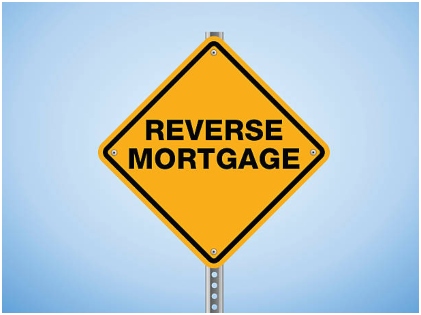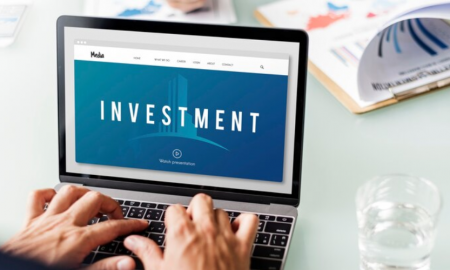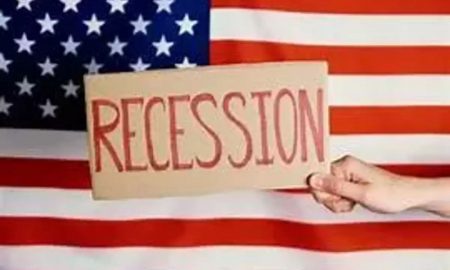
Do You Qualify For Reverse Mortgage? Here’s What You Need to Know

When you take a loan against the value of your home, it is known as a reverse mortgage. So who can avail of a reverse mortgage? It is a good option for people who are 62 or older, and you borrow against the value of your home and receive a substantial amount as a loan. You get a fixed monthly payment or get a line of credit. It is the type of mortgage that helps you to buy a home and you won’t have to make any payments to the lender.
Instead, the loan is paid off after the borrower passes away, goes away to live somewhere else, or sells his house.
A reverse mortgage also enables you to take stock of the current equity you have built up in your home at the time of retirement. As far as reverse mortgage is concerned there are three types of reverse mortgage you should know about, but the most popular is the HECM or home equity conversion mortgage. The HECM is the reverse mortgage is the lenders who offer on home values below the sum of $970,800. The key thing to know is how you can qualify for the reverse mortgage.
Your Age
 Reverse mortgages cater to the needs of the older homeowners who do not have other sources of retirement savings to keep a tab on the equity they’ve built up for their homes. First, you have to be 62 years old to qualify for a reverse mortgage. You can also add a spouse as a co-borrower who is 62 or older.
Reverse mortgages cater to the needs of the older homeowners who do not have other sources of retirement savings to keep a tab on the equity they’ve built up for their homes. First, you have to be 62 years old to qualify for a reverse mortgage. You can also add a spouse as a co-borrower who is 62 or older.
Equity Requirements
To qualify for a reverse mortgage you need to build at least 50% of the equity in your home. Also, you need to live in the house you are taking a reverse mortgage against. It may be either a condominium, house, townhouse, or a manufactured home built on or after the date of June 15, 1976. Also, cooperative housing owners (under FHA rules) cannot avail of reverse mortgages as they are not the owner of the property they are living in but is only part owner of the shares of a corporation.
It holds of New York, where co-operative houses are a common thing and state laws have recently prohibited reverse mortgages in co-ops so that state law until recently has allowed only one-to-four family in condos and residences. The recently reversed bill now allows residents of New York City two types of reverse mortgages in case of borrowers, HECMs that are insured by the federal government.
Income and Credit Score Requirements
 Reverse mortgages don’t have any requirements as far as income or credit score is concerned. This is what separates reverse mortgages from a home equity loan or a HELOC or what you call a Home Equity Line of Credit. HELOCs offer suitable access to home equity. For reverse mortgages, you do not have to make payments but the opposite is true of home equity loans and HELOCs you need to have a good credit score to qualify for such loans. Reverse mortgages are also a slightly more expensive option and you may need to pay a heftier fee for the same.
Reverse mortgages don’t have any requirements as far as income or credit score is concerned. This is what separates reverse mortgages from a home equity loan or a HELOC or what you call a Home Equity Line of Credit. HELOCs offer suitable access to home equity. For reverse mortgages, you do not have to make payments but the opposite is true of home equity loans and HELOCs you need to have a good credit score to qualify for such loans. Reverse mortgages are also a slightly more expensive option and you may need to pay a heftier fee for the same.
Counseling Session
The HUD or the U.S. Department of Housing and Urban Development requires all the people who want to get reverse mortgage borrowers to attempt a HUD-endorsed counseling session. This counseling session may set you back by $125. This session offers you a crash course on a reverse mortgage and teaches you how it can cater to your specific financial circumstances.
Up-Front Mortgage Premium
 You need to cough up a fair bit of money to avail reverse mortgage, which includes an origination fee and a mortgage insurance premium. These costs are paid from the loan itself. It means that you do not need to eke out savings to opt for a reverse mortgage. However, these upfront costs are relatively high whether you are paying from your pocket or the equity.
You need to cough up a fair bit of money to avail reverse mortgage, which includes an origination fee and a mortgage insurance premium. These costs are paid from the loan itself. It means that you do not need to eke out savings to opt for a reverse mortgage. However, these upfront costs are relatively high whether you are paying from your pocket or the equity.
If you don’t qualify for the loans mentioned above then you can try other options such as selling or downsizing. You can do the selling to your own family to keep your home to the family. In some cases, people sell their homes and start living there as a renter to continue living in the place they called home for so many years.
More in Loans & Mortgages
-
`
Curious About Travis Kelce’s Net Worth? Here’s the Scoop!
Travis Kelce’s name echoes through NFL stadiums, synonymous with athletic prowess and electrifying plays. But beyond his touchdown celebrations and record-breaking...
June 10, 2024 -
`
Everything You Need to Know About an Assumable Mortgage
What is an Assumable Mortgage? Whether you are a buyer or a seller, understanding the concept of assumable mortgages can open...
June 6, 2024 -
`
Layoff vs. Fired – Understanding the Crucial Differences
When it comes to job loss, understanding the distinction between being layoff vs. fired is crucial. While both situations result in...
May 30, 2024 -
`
When Are Business Taxes Due 2024? Essential Dates and Deadlines
Tax deadlines can be daunting, but fear not! Let’s break down everything you need to know to stay on top of...
May 22, 2024 -
`
How Much Does Jeff Bezos Make Per Hour? It’s More Than You Think!
Jeff Bezos, a name synonymous with innovation and wealth, stands as one of the world’s richest individuals. While Bernard Arnault and...
May 16, 2024 -
`
What is Portfolio Investment Entity (PIE) and How Can it Benefit You?
In the intricate world of finance, individuals seek avenues to optimize their investments while minimizing risks. One such avenue gaining traction...
May 9, 2024 -
`
What is a Bank Statement? Understanding its Definitions, Benefits, and Prerequisites
Ever wondered where your money goes? A bank statement is like a financial report card, giving you a clear picture of...
April 30, 2024 -
`
Branded Content: A Genuine Way to Connect With Your Audience
Have you ever binge-watched a series on Netflix, only to later realize that the beverage everyone’s sipping on is that brand...
April 23, 2024 -
`
What Car Does Jeff Bezos Drive? Find Out Inside His Exclusive $20 Million Collection
Have you ever wondered what car does Jeff Bezos drive? This man’s tastes in vehicles are as expansive as his business...
April 17, 2024















You must be logged in to post a comment Login